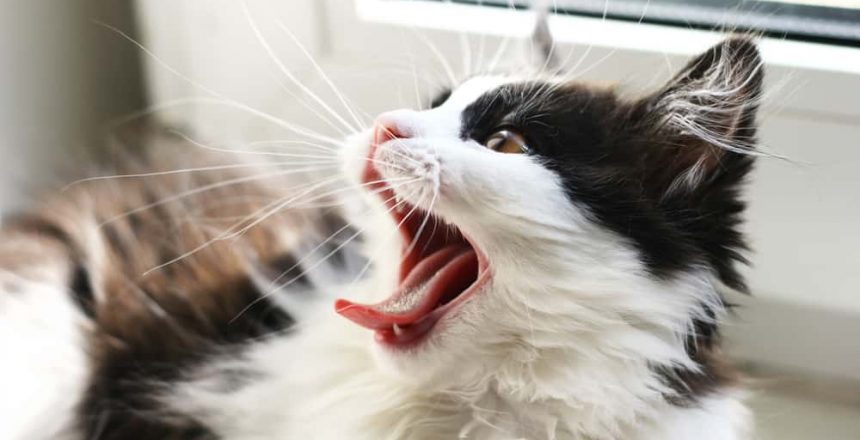Let’s face it, the noises that our cats make are pretty adorable. The little purrs, chirps, and meows are a big part of why we love our feline friends so much. Vocalizations can be a healthy way for cats to express themselves, but excessive meowing can have us pulling our hair out in confusion and frustration.
Why Does My Cat Meow So Much?
Meowing is a natural and essential form of communication for cats. When they are born, kittens are entirely dependent on their mother, so when they are hungry, scared, or cold, a loud cry is a signal that they need help.
Generally, as cats get older and become more self-sufficient, the tendency to meow out of need fades. However, in some cases (especially when a kitten is separated prematurely from its mother), the habit can persist.
If your cat is persistently meowing, it is likely for one of the following reasons:
- Attention
- Hunger
- Thirst
- Pain
- Loneliness
- Stress
- They want to go outside
What Can I Do To Control My Cats Meowing
It’s crucial to remember that excessive meowing is a learned habit, meaning that over time your cat has figured out that doing so is an effective way to get what they want. So if your cat’s vocalization is becoming a problem, what can you do?
Ignore Them (for a while)
If your cat wakes you up at 6 am every day crying for food, the worst thing you can do is give in and feed them. Doing so is only further conditioning your cat to meow to get what they want.
Instead of giving in to their pleas, just for the sake of silence and sleep, try to ignore them until the time that you usually wake up. It may be a rough few days, but your cat will quickly learn that waking you up with their cries isn’t an effective way to get fed.
The same applies to a cat that is craving attention. Instead of holding or petting your cat when they start meowing, wait for a moment of silence and then give them the attention they want. Doing this will begin to reprogram their mind to realize that asking quietly is the best way to get what they want.
Get Your Cat A Friend
Cats that spend most of the day at home alone will likely crave a lot of love and attention from you as soon as you walk in the door. If your furry friend expresses this desire by meowing excessively, you may want to consider bringing home a second cat.
Having a playmate will provide the mental stimulation that your cat needs to avoid feeling lonely or bored throughout the day, making them less likely to cry out for attention.
You can also use a second cat as a learning tool. Felines are very observant animals, so when your cat sees their new friend gets a reward for “desirable” behavior, they will likely follow suit.
Take Your Cat To The Vet
If your efforts to control your cat’s vocalizations have been unsuccessful, the best thing you can do is take them to see a vet. According to the ASPCA, “As cats age, they’re prone to developing an overactive thyroid and kidney disease, and either one may result in excessive meowing.”
While it’s easy to dismiss excessive meowing as a behavioral issue, seeking the opinion of an experienced veterinarian can be a lifesaver for your furry friend.


